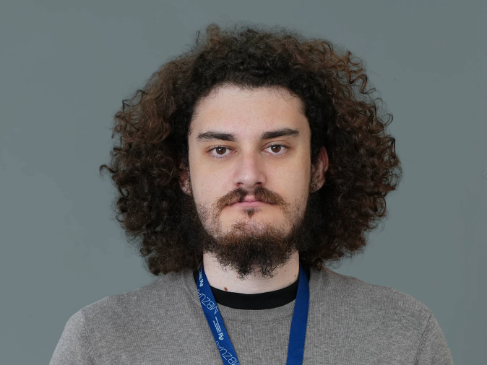Roman Bresson
Assistant Teaching Professor and Research Scientist
Research Interests
Professor Bresson’s research focuses on:
- Foundational AI for graphs: Furthering neural models' ability to leverage complex relational structures that can be used to represent molecules, cities, or communities.
- Fighting diseases today for a healthier tomorrow: Generating drug-like molecules, clustering cancer subtypes, and refining medical imaging through generative techniques.
- Adding trust to the mix: Working at the defense and aerospace company Thales for five years, building AI models whose behaviors can be strictly controlled and monitored.

Prior to joining MBZUAI, Professor Bresson was a Software Engineer at Ensimag (France), specializing in applied mathematics, optimization, simulation and statistics. Professor Bresson developed novel neural architectures that ensure trustable models for safety-critical context, and worked at Thales as a research engineer – specializing on safe and trustable machine learning systems for safety-critical contexts. Professor Bresson was a postdoctoral researcher at KTH (Sweden), honing his research skills and transitioning to graph and generative machine learning.
- Postdoctoral Researcher, KTH Royal Institute of Technology, Sweden
- Research Engineer, Thales Research and Technology, France
- Ph.D. in Machine Learning, Université Paris-Saclay and Thales, France
- Software and Applied Mathematics Engineer from The École nationale supérieure d'informatique et de mathématiques appliquées (Ensimag), France
- M.Sc. in Applied and Industrial Mathematics from Ensimag, France
- Classes Préparatoires aux Grandes Ecoles in Mathematics-Physics from Lycée Joffre, Montpellier, France
- Thales Ph.D. Award 2023.
- Patents:
- "Method for generating a decision support system and associated systems, FR2005894, 2020",
- "Method and system for supervising a tracking system, FR1915153, 2021",
- "Method for evaluating the compliance of a tracking system using a restricted number of measurements and associated devices, WO2025008535A1, 2024".
- OMIDIENT: Multiomics Integration for Cancer by Dirichlet Auto-Encoder Networks N Safinianaini, N Välimäki, R Bresson, A Gorbonos, K Rajamäki, L A Aaltonen, P Marttinen bioRxiv, 2025.07. 02.662608, 2025
- Obtaining Example-Based Explanations from Deep Neural Networks G Dong, H Boström, M Vazirgiannis, R Bresson IDA 2025
- Prediction Via Shapley Value Regression A Alkhatib, R Bresson, H Boström, M Vazirgiannis The International Conference on Machine Learning (ICML2025)
- KAGNNs: Kolmogorov-Arnold Networks meet Graph Learning R Bresson, G Nikolentzos, G Panagopoulos, M Chatzianastasis, J Pang, M Vazirgiannis TMLR (2025)
- Cutting the Black Box: Conceptual Interpretation of a Deep Neural Net with Multi-Modal Embeddings and Multi-Criteria Decision Aid N Atienza, R Bresson, C Rousselot, P Caillou, J Cohen, C Labreuche, M Sebag IJCAI24